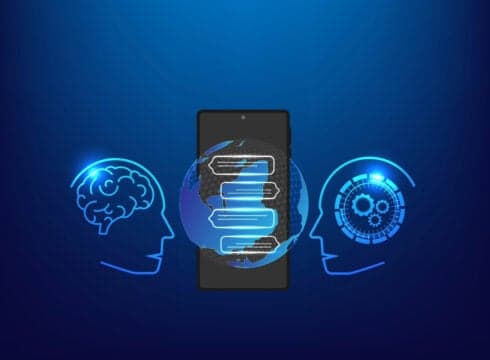At least one in two Indian employees are worried about losing their jobs to AI compared to one in three in developed countries
India has perhaps the most to gain or lose when it comes to the impact of Generative AI
If India has to become a global economic superpower, engineers must become tech-agnostic and adaptable in a world that's changing fast
Inc42 Daily Brief
Stay Ahead With Daily News & Analysis on India’s Tech & Startup Economy
This past year, if there’s one conversation that has dominated living rooms and boardrooms, it is how the widespread adoption of artificial intelligence and automation technologies will impact jobs across industries.
In fact, according to Randstad’s Workmonitor quarterly pulse survey released recently, Indian employees are more wary of losing their jobs to artificial intelligence (AI) than their counterparts in developed countries like the US, UK, and Germany.
At least one in two Indian employees are worried about losing their jobs to AI compared to one in three in developed countries.
At the same time, India’s tech talent remains in high demand globally, with a longstanding reputation for providing top-notch software development professionals.
But can India achieve the economic growth it dreams of with the current skills that its tech employees have? The answer is a resounding NO.
The need to upskill India’s tech talent is critical. Why? Because India has perhaps the most to gain or lose when it comes to the impact of Generative AI. A survey by ServiceNow found that India faces a critical need to upskill 1.62 crore workers in AI and automation, creating 4.7 million new jobs in technology by 2027 to meet the nation’s skill deficit.
This transformation is essential, given the potential of AI and automation to contribute up to $500 Bn to India’s GDP by 2025.
Given that India boasts the world’s largest youth population, with approximately 66% of its total population below the age of 35, and the expansive reservoir of young talent here being predominantly middle class, upskilling the youth and preparing them as the workforce of the future is the need of the hour.
But how will these students afford this upskilling? Here’s where a ‘Pay after Placement’ model can fundamentally alter the dynamics of learning. This model empowers students with practical skills, making them job-ready before any financial commitment to their education.
Regardless of background or socio-economic status, a student can access a transformative learning experience if the traditional education model is redefined to emphasize making the student successful and not prioritizing the success of the institute.
Now, the question is, can Generative AI help train such a large young population? Yes! This technology can create personalized learning paths. With modules integrated with AI to optimize outcomes, students can learn better with real-time feedback and take advantage of a more customized learning experience.
If India has to become a global economic superpower, engineers must become tech-agnostic and adaptable in a world that’s changing fast. A Generative AI layer must be integrated into their education modules.
This will equip them with cutting-edge skills and ensure versatility – from software developers to prompt engineers, enabling them to navigate diverse technological domains.
Investing in developing AI skills for the youth is an investment in India’s future. A pay-after-placement education model integrated with AI skills is the magic pill for India to shape a workforce that not only meets the demands of the digital age but leads the way in innovation and progress.
{{#name}}{{name}}{{/name}}{{^name}}-{{/name}}
{{#description}}{{description}}...{{/description}}{{^description}}-{{/description}}
Note: We at Inc42 take our ethics very seriously. More information about it can be found here.


